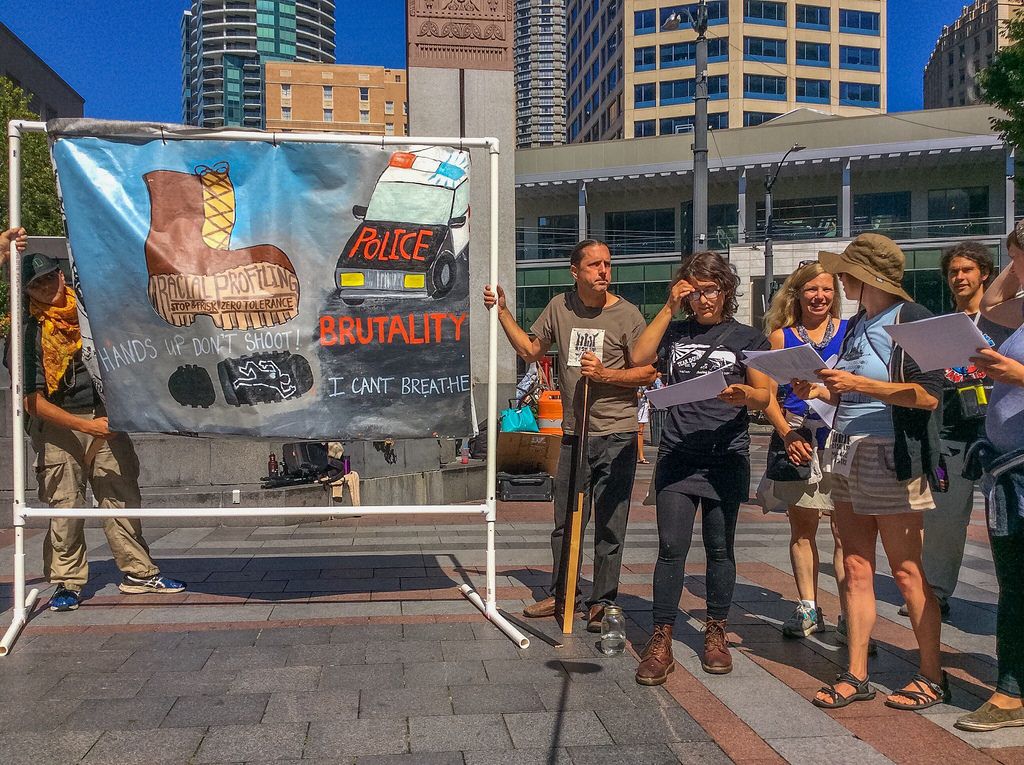After three high-profile shootings across the United States in a week, United Nations experts linked the violence to American leaders' increasing use of "divisive language" and "attempts to marginalize" minorities.
The U.N. Working Group of Experts on People of African Descent — which grew from the 2001 World Conference against Racism in Durban, South Africa — called on U.S. leaders to recommit to human rights, including equal protection under the law, in response to the mass shootings.
“The use of race to instill fear, gain votes or power, or mask injustices must stop," the panel said on Wednesday.
"Those with privilege and power have a heightened responsibility to mitigate, not encourage, racism, intolerance, and bigotry," it said. "Communities and leaders throughout the United States should take seriously their obligations to prevent further tragedies and protect the human rights of all equally and without condition.”
A July 28 shooting with four deaths in Gilroy, California preceded back-to-back shootings in El Paso, Texas, and Dayton, Ohio, last weekend that resulted in 31 fatalities in less than 24 hours.
The U.N. panel's five experts from Jamaica, the Philippines, Poland, South Africa and the United States criticized what they said were politicians' attempts to marginalize racial, ethnic and religious minorities.
They called on American leaders "to address such violence without delay as a matter of White supremacy and racism,” and said that anything less than “immediate and direct action” to prevent further acts of domestic terrorism would amount to complicity in the violence.
“The United States must recognize the direct impact that racism, xenophobia and intolerance have in promoting violence and in creating fear and instability in ethnic and religious minority communities," said the panel's chair, Ahmed Reid of Jamaica, an associate professor of Caribbean history at City University of New York. “Perpetuating racism perpetuates violence.”
In a joint statement, E. Tendayi Achiume of Zambia, the U.N.'s special rapporteur on contemporary forms of racism, racial discrimination, xenophobia and related intolerance, condemned the use of hate speech in U.S. politics.
"Intolerance, bigotry and racism by politicians and leaders to secure or maintain popular support renders those individuals complicit in the violence that follows," said Achiume, a law professor at the University of California, Los Angeles School of Law.
The panel said the manifestos and social media posts of the attackers in the shootings "reflect political discourse that devalues and dehumanizes people on the basis of their race, religion, immigration status and/or ethnicity."
"The attackers in several mass shootings cited this rhetoric," it said, "along with ideas propounded by White nationalist movements and populist movements, as inspiration.

Debunking the mental illness claim
The panel questioned the explanations from U.S President Donald Trump and other politicians on why there was a proliferation of mass shootings in America. “Mental illness and hatred pulls the trigger,” Trump told the nation on Monday. “Not the gun.”
Panel members instead pointed to the way in which such atrocities are celebrated on White nationalist media platforms and promoted by White nationalist and populist movements.
“The increasing use of divisive language and attempts to marginalize racial, ethnic and religious minorities in political speech has functioned as a call to action, facilitating violence, intolerance and bigotry," the panel said. "The connections between mass shootings and White extremist ideology are well-established, and celebration of these atrocities in White nationalist social media is common.”
The American Psychiatric Association and American Psychological Association's President Rosie Phillips Davis both issued statements seeking to debunk any association of mental illness with mass shootings.
Davis said it is clear that America faces a public health crisis of gun violence fueled by racism, bigotry and hatred. A combination of easy access to assault weapons and hateful rhetoric is toxic, she said, and social contagion also may be a factor.
"Racism has been shown to have negative cognitive and behavioral effects on both children and adults and to increase anxiety, depression, self-defeating thoughts and avoidance behaviors," she said. “Routinely blaming mass shootings on mental illness is unfounded and stigmatizing. Research has shown that only a very small percentage of violent acts are committed by people who are diagnosed with, or in treatment for, mental illness."
Davis also said that the rates of mental illness are roughly the same around the world, yet other countries are not experiencing these traumatic events as often. One critical factor, she said, "is access to and the lethality of the weapons that are being used in these crimes. Adding racism, intolerance and bigotry to the mix is a recipe for disaster. "
The American Psychiatric Association's condemned the senseless violence and said gun violence is a public health crisis.
"It is important to note that the overwhelming majority of people with mental illness are not violent and far more likely to be victims of violent crime than perpetrators of violence," it said. "Rhetoric that argues otherwise will further stigmatize and interfere with people accessing needed treatment. Individuals can also be emboldened to act violently by the public discourse and divisive rhetoric."









